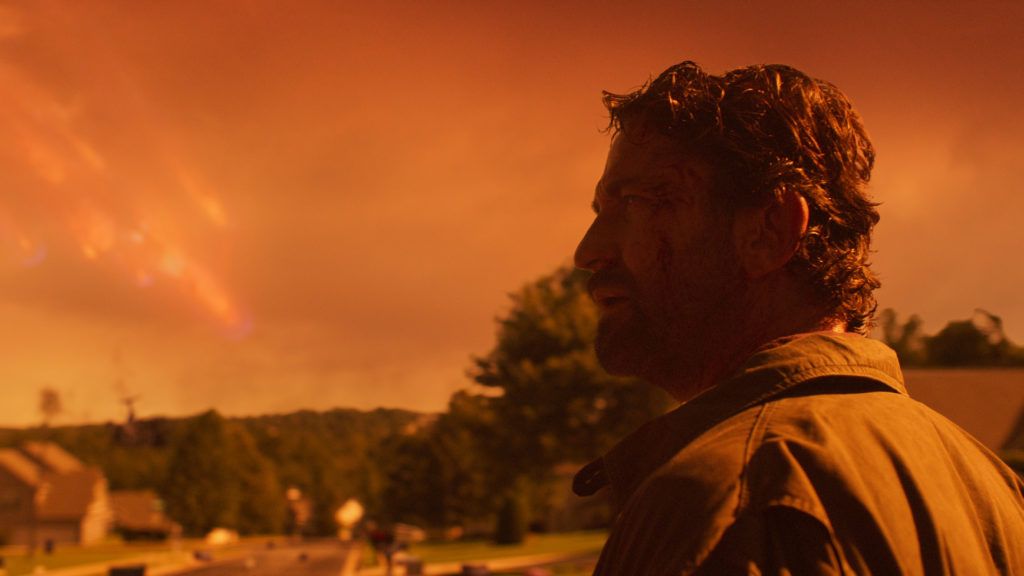Greenland

Gerard Butler stars in GREENLAND. (Photo: STX Entertainment)
By big-budget disaster flick standards, Greenland deserves some credit for focusing more on the human characters than special effects and meteorological mayhem.
However, such ambitions are compromised by an accumulation of logical gaps and a lack of emotional connection, leaving the cataclysmic concept lost in space.
What better occasion to mend a fractured family than a global natural disaster? John (Gerard Butler) is a construction foreman who is separated from his wife, Allison (Monica Baccarin), who remains in their house with the couple’s precocious preteen son (Roger Dale Floyd).
Everyone is gathered together when news reports warn that a rogue comet will strike Earth within hours in an “extinction-level event.” At the same time, John and family are summoned via text message by the government to a military base, for travel to a remote bunker — in Greenland, as it turns out — with others critical to rebuilding society after the dust settles.
Circumstances scuttle those plans, separating John from Allison and the youngster as the desperation around them grows. As hopes for survival remain in limbo and the chances for a reunion dwindle, it becomes survival of the fittest and brings out the worst of human nature. It seems no place is safe, and no strangers can be trusted.
As directed by Ric Roman Waugh (re-teaming with Butler after Angel Has Fallen), the escapist saga is mildly suspenseful in its depiction of mass hysteria in the face of unknown tragedy, and how such widespread panic is enhanced in the social-media age. That strikes a timely chord, whether intentional or not.
The screenplay by Chris Sparling (The Sea of Trees) smartly avoids any mention of politics and doesn’t rely on technology as a crutch, concentrating on ordinary humans using their wits to overcome life-threatening adversity as their world is irrevocably changed in mere moments.
Still, Greenland never bothers to explain much of the science behind its astronomical phenomenon. As a result, the dystopian ramifications aren’t as provocative or harrowing as intended. It seems debris can fall from the sky anywhere at any time, which heightens the stakes and the spectacle at convenient intervals.
Despite some effective character-driven moments, it all funnels prosaically toward an obligatory doomsday finale with massive destruction, a glimmer of hope, and the future of humankind in the balance. Unlike the comet, that much is easy to predict.
Rated PG-13, 119 minutes.